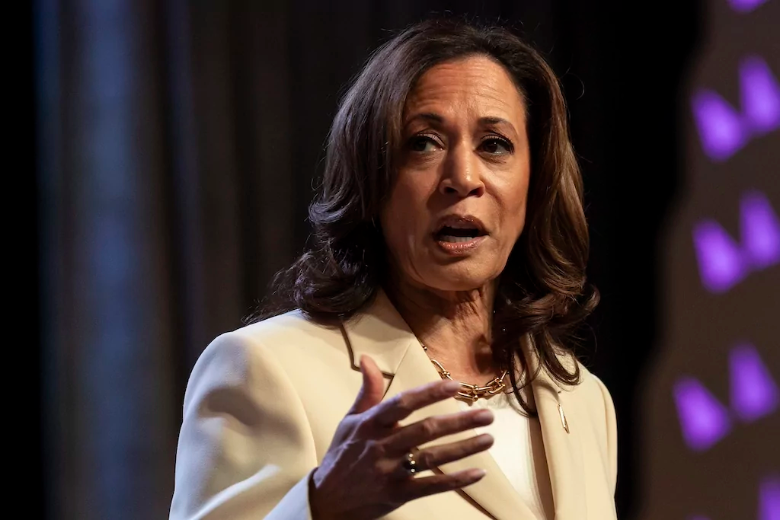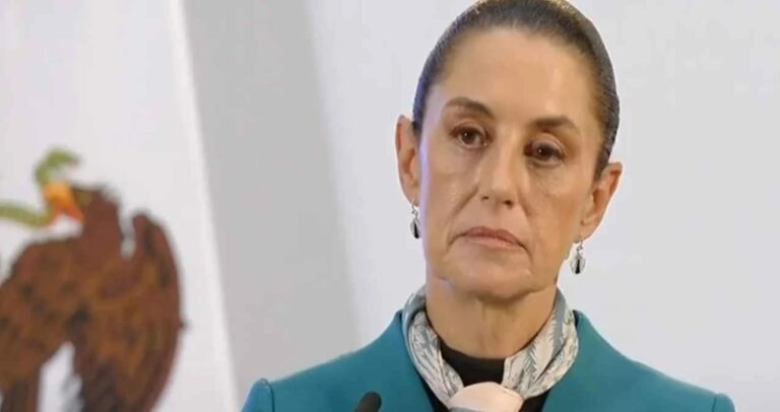In a significant political shift, former PayPal CEO David Sacks has announced his decision to switch parties, moving from the Democratic Party to the Republican Party, and endorsing former President Donald Trump for the upcoming November election.
This move underscores the growing discontent among some business leaders with the current Democratic leadership and highlights a broader trend of political realignment within corporate America.
Sacks, who served as PayPal’s CEO from 2000 to 2001, made the announcement during a recent interview on Fox Business; “I’ve reached a point where I can no longer support the Democratic Party’s policies and direction,” Sacks stated. “The current administration’s approach to economic and social issues is fundamentally flawed and detrimental to the nation’s future.”

He further elaborated that his decision was motivated by a desire to support policies that he believes will foster economic growth and preserve individual freedoms.
This declaration has garnered significant attention, particularly given Sacks’ influential role in the tech industry and his previous support for Democratic candidates. Sacks has been a prominent figure in Silicon Valley, known for his investments in successful tech startups and his vocal advocacy for free speech and entrepreneurialism.
Sacks’ endorsement of Donald Trump is particularly notable. “President Trump’s policies have demonstrated a commitment to economic growth, national security, and individual liberties,” Sacks remarked. “I believe his leadership is what the country needs to navigate the current challenges and return to a path of prosperity.” This endorsement comes at a critical time for Trump, as he seeks to solidify his base and attract undecided voters ahead of the November election.
I am crossing the Rubicon and backing the Republican Party and President Trump.
Many — including a former version of myself — get trapped in a mental framework that becomes their identity and prevents them from radically evolving their thinking with new facts and information. I…
— David Marcus (@davidmarcus) July 31, 2024
Here is his entire X post:
I am crossing the Rubicon and backing the Republican Party and President Trump.
Many — including a former version of myself — get trapped in a mental framework that becomes their identity and prevents them from radically evolving their thinking with new facts and information. I finally broke free from it.
My journey has been a gradual political 180 from where I stood in every previous election. It has been an eye-opening process of disenchantment, zero-basing lifelong beliefs, and rebuilding from there.
In 2017, a good friend enlisted me to pitch the DNC to raise $100M from Silicon Valley founders and executives. The aim was to use these funds and know-how to build a CRM and tech platform to prevent a repeat of Hillary Clinton’s inadequate, outdated 2016 campaign. We met with DNC leadership, who told us we could raise that money, but it would have to go to the general fund; a single-digit percentage would then be allocated to tech. In the wake of one of their most shocking failures, they didn’t want the help.
The next series of realizations began in 2019 while I was at Meta, right after we announced the Libra white paper. I testified before the Senate and the House and subsequently spent significant time in DC, engaging with lawmakers, cabinet members, regulators, and two White House administrations. At the time, I still believed the mainstream idea that Democrats were all about serving the People. However, I was shocked to learn that, for the most part, Republicans cared more deeply about their constituents, while Democrats, in my experience, cared more about government power and control. This is my observation on balance, with many stories to back it up. I also found that more Republicans wanted to understand our project’s goals and took the time to learn about the risks of censoring payments and controlling the network. I found myself remarkably aligned with them.
Then COVID came, revealing more. While I don’t subscribe to the most malicious vaccine conspiracy theories, I do take offense at the censorship machine put in place to hide the origin of the virus from the NIH-funded Wuhan lab and all dissenting voices on vaccinations and lockdowns. At that time, I fully appreciated why Republicans value freedom of speech and preventing censorship.
This trend of spinning and manufacturing a parallel reality to serve the Dem agenda, solidified by complicit mainstream media, hit home with the Hunter Biden laptop story, the coordinated vilification of President Trump and his followers, and President Biden’s cognitive decline — depriving voters of a voice in a proper primary. These examples displayed the hubris of the current Dem leadership. You must think the American people are fools to believe the spin on these issues. I despise this elite vs. general population ideology viscerally.
This version of the Democratic Party is sidelining moderates and centrists and has adopted an increasingly leftist ideology. This drift to the left has dictated policies from which I’ve found myself estranged.
On the domestic front, there has been a total departure from the core American value system of meritocracy, an extreme and weaponized DEI agenda, an open door to massive illegal immigration, and a once-fringe narrative, now mainstream within the party, of vilifying success. This shift is also causing us to fall behind due to an anti-innovation regulatory climate, notably on crypto and soon AI — two non-linear technological breakthroughs that will likely determine tomorrow’s leading countries.
On foreign policy, the administration is exacerbating tensions with Russia through an aggressive NATO expansion narrative focused on Ukraine and prolonging an unwinnable war. This is costing American taxpayers hundreds of billions of dollars, the world hundreds of thousands of lives, depleting the U.S. military arsenal and risking World War III. On Iran, this administration is continuing a misguided Obama-era plan to bring Iran closer to the West by unfreezing Trump-era sanctions, thus giving the Mollahs’ regime the ability to fund terrorism and pursue its anti-America, anti-Israel, and anti-Jewish agenda. The withdrawal from Afghanistan was also handled disastrously. We’re leaving a door open for China to invade Taiwan by coming across as weak. Most importantly to me, concerning Israel, the administration is enabling Iran to fund Hamas and Hezbollah, restraining Israel in its fight against its enemies, thus prolonging another conflict, which is costing more lives on both sides and allowing unprecedented levels of antisemitism to rise at home.
I believe we need a President who is unequivocally pro: America, the Constitution, business, Bitcoin/crypto, innovation, Israel, small government, legal immigration, free speech, meritocracy, and common sense — and anti: regulatory proliferation, illegal immigration, unjust wars, Iran’s current regime, and domestic groups that oppose American values. These issues are central to President Trump’s platform.
Naturally, I disagree with President Trump and the GOP on some issues, particularly women’s reproductive rights. While I’ve come to learn that extreme views exist in both parties, I firmly believe that women should have the unalienable right to make their own decisions on this polarizing topic. President Trump confirmed he was against a national abortion ban and supported the Supreme Court’s decision on maintaining access to mifepristone, which was reassuring and a sign that the party was moving closer to the center.
It’s impossible to close this post without mentioning President Trump’s recent assassination attempt. The courage and resolve he displayed seconds after being hit by a bullet was awe-inspiring for his followers and detractors alike. This was a man, however imperfect, who, at that moment, incarnated the American spirit in the most vivid way, starting to bring a split nation together.
Some claim that reelecting President Trump will bring our democracy to its knees. However, the alternative — having unelected individuals with this much power and no accountability run our government coupled with four more years of bad policies at home and abroad — might present a more significant threat. Neither will likely change in a Harris administration and could potentially worsen.
In this pivotal moment, confronted with the choices we have, I am endorsing and supporting a return to a Republican administration in 2025.
The former PayPal CEO’s party switch is not an isolated incident. It reflects a broader trend among business leaders who are increasingly disillusioned with the Democratic Party’s policies.
Many have expressed concerns over the party’s stance on taxation, regulation, and social issues. Sacks’ move may inspire other prominent figures in the business community to reconsider their political affiliations.
However, supporters argue that Sacks’ decision is a testament to his commitment to principles over party loyalty. “David Sacks has always been a forward-thinking leader,” said a Republican operative. “His endorsement of President Trump is a significant boost to our campaign and a clear signal that the Democratic Party’s policies are alienating key supporters.”
The endorsement also raises questions about the future political landscape of Silicon Valley. Traditionally a stronghold for Democratic support, the tech industry is seeing a growing number of executives expressing conservative views and supporting Republican candidates. This shift could have profound implications for future elections and policy debates.
Sacks’ party switch and endorsement of Trump are also indicative of a broader dissatisfaction with the Democratic Party’s handling of the economy and social issues. Many business leaders have voiced concerns over the party’s push for higher taxes and increased regulation, arguing that these policies stifle innovation and economic growth. Sacks echoed these sentiments, emphasizing the need for a more business-friendly environment.
“The current administration’s policies are driving talent and capital away from the United States,” Sacks said. “We need a leader who understands the importance of a thriving economy and is committed to creating an environment where businesses can flourish.”
As the November election approaches, Sacks’ endorsement is likely to have a ripple effect, influencing not only voters but also other business leaders who may be contemplating a similar shift. This development highlights the dynamic and often unpredictable nature of American politics, where personal convictions and professional experiences can lead to unexpected alliances and endorsements.
David Sacks’ decision to switch parties and endorse Donald Trump underscores a critical moment in the political landscape, reflecting broader trends and sentiments within the business community. It remains to be seen how this move will impact the election, but it undeniably adds a new dimension to the ongoing political discourse.

